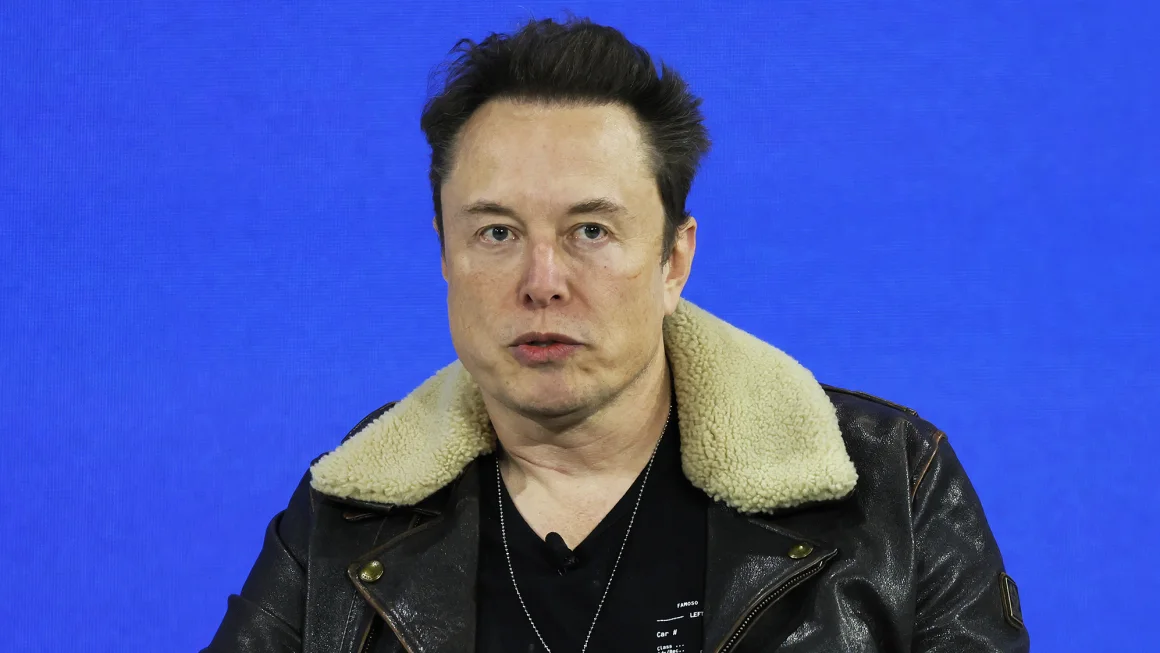
[ad_1]
New York CNN — Elon Musk says he wants a significantly larger stake in Tesla than the one that already made him the richest person on the planet.
In a series of posts on X Monday night, Musk said that he would not want to grow Tesla to become a leader in artificial intelligence and robotics without a compensation plan that would give him ownership of around 25 percent of the company’s stock. That would be about double the roughly 13 percent stake he currently owns.
“I am uncomfortable growing Tesla to be a leader in AI & robotics without having ~25 percent voting control. Enough to be influential, but not so much that I can’t be overturned,” Musk wrote in a post on X. “Unless that is the case, I would prefer to build products outside of Tesla.”
Notably, Musk held a stake of more than 20 percent in Tesla before he sold a large number of shares to buy X, the social media company he purchased over a year ago for $44 billion.
Tesla remains the leader in electric vehicles, but the competition is gaining ground. Musk has said the company’s future lies in AI and robotics. In January 2022, he said on a call with Wall Street analysts that he believes the company’s goal of building a humanoid robot is the most important technology it’s developing. Musk said of its planned robot, “This I think has the potential to be more significant than the vehicle business over time.”
The robot is notably not ready for prime time: Introduced at the company’s AI Day in September, the robot, dubbed Optimus by Tesla, walked stiffly on stage, slowly waved at the crowed and gestured with its hands for roughly one minute. Nevertheless, Tesla believes in a robot-led future, and investors have sent the stock surging over the past year in the hopes that Musk & Co. can deliver innovations that propel the company to new heights.
So any signal that Musk won’t continue that line of work at Tesla could be unnerving for investors. Shares of Tesla (TSLA) fell 1.5 percent in premarket trading Tuesday.
Musk has gone several years without a new compensation plan. Worth $56 billion when it was announced in 2018, his previous plan was the biggest pay package for any CEO in history. The deal was so large that Musk and Tesla faced a shareholder lawsuit over the package last year, and they continue to await a Delaware Chancery Court ruling on whether the pay was excessive.
The lead plaintiff in that lawsuit claimed Musk exploited his control over the company and its board of directors to get the massive pay package and said Musk had incentive enough before he got the enormous addition of shares because he already had enough ownership of the company. Musk and the Tesla board of directors were accused of breaching their fiduciary duties for waste and unjust enrichment.
Musk on Monday said he and Tesla are waiting for ruling in the case before they agree to a new pay package.
“I should note that the Tesla board is great,” Musk said in an X post. “The reason for no new ‘compensation plan’ is that we are still waiting for a decision in my Delaware compensation case.”
Musk then said he put “compensation plan” in quotes because he is mainly concerned about the amount of ownership he holds. The Tesla CEO argued that he wields too little influence at the company and fears that asset managers that hold massive stakes in Tesla, such as Fidelity and BlackRock, could undermine his ability to transform the company if he sought to take it in a new direction.
“If I have 25 percent, it means I am influential, but can be overridden if twice as many shareholders vote against me vs for me,” Musk wrote. “At 15 percent or lower, the for/against ratio to override me makes a takeover by dubious interests too easy.”
Many tech companies have a dual-class voting system, in which a founder or early leader like Musk has multiple votes for each share to maintain their outsized influence of the company. Mark Zuckerberg, for example, holds 61 percent of the voting power at Meta despite Vanguard, BlackRock and Fidelity owning more Meta stock than he does.
But Musk said a dual-class system at Tesla was a nonstarter, blaming a “post-IPO Delaware.” It’s unclear exactly what Musk meant by that. Regulators have been pushing back on those kind of ownership structures, but they’re still allowed.
[ad_2]